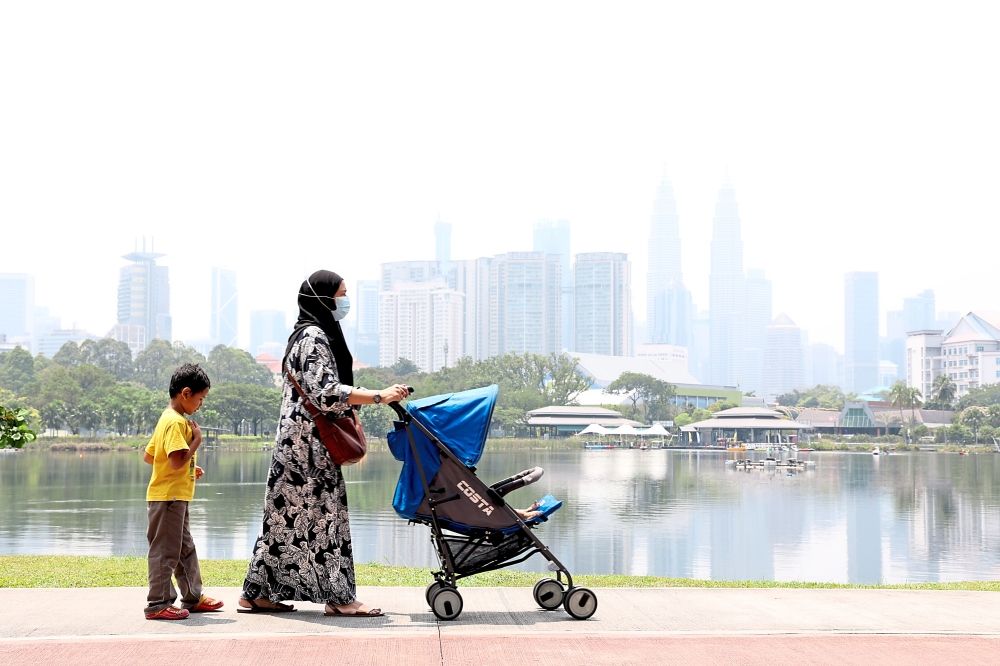PETALING JAYA (ANN/THE STAR) – Southeast Asian countries have raised their alert level of the transboundary haze risk to Level 2, compelling national bodies to brace for higher air pollution readings in the next few days.
Level 2 refers to the risk of transboundary haze in the region where escalating hotspot activities with moderate to dense smoke haze are observed over two days or more, with dry weather persisting and prevailing winds blowing smoke from the hotspots towards neighbouring ASEAN countries.
Smoke from Kalimantan is forecast to impact the haze situation in Kuching, Serian and Samarahan in Sarawak in the next few days, said Malaysian Meteorological Department director-general Muhammad Helmi Abdullah.
Citing satellite images recorded yesterday by the ASEAN Specialised Meteorological Centre (ASMC), he said there are no hotspots in the category of high-confidence level recorded in the whole of Malaysia. (A high confidence level hotspot means that the fire spot does exist and is not a false alarm.)
“Kalimantan, however, showed 353 hotspots, while 113 hotspots were detected in Sumatra,” Muhammad Helmi said in a statement yesterday.
On Friday, ASMC announced the activation of Alert Level 2 for Sumatra, the nearest Indonesian region to Peninsular Malaysia.
Malaysia’s Environment Department (DOE) had been asked by the Natural Resources, Environment and Climate Change Ministry to increase its vigilance on local open burning to deal with the transboundary haze.
The DOE has upped its monitoring of air quality, enforcing laws on open burning especially in peat land, continuous implementing of peat-land burning prevention programmes along with citizen reporting and awareness.
“The public is advised to be alert with the API readings through the various DOE apps and refrain from open burning, especially on peat lands or landfills,” it said, warning that those who do so face a maximum fine of RM500,000, imprisonment of five years or both.
According to the department, measures taken by Malaysia to face the transboundary haze were based on the Asean Agreement on Transboundary Haze Pollution, which allowed for data sharing and collective fighting of open burning in plantations.
“During the meeting in Vientiane, Laos, in August, Indonesia reported that hotspots have decreased by 96 per cent, while the area of burning decreased by 94 per cent as compared to 2019,” said the DOE.

It also said ASEAN countries are on a roadmap to completely free the region from haze by 2030.
The DOE said all communications with regards to the transboundary haze would be done in a diplomatic manner.
Meanwhile, Indonesian ambassador to Malaysia, Hermono, said his government is monitoring the transboundary haze situation closely.
“So far, we have not received any formal complaints but we are taking this issue seriously.
“An interagency meeting was called in north of Borneo to address this issue,” Hermono said when contacted yesterday.
The Australian Bureau of Meteorology has also issued warnings of a pending heatwave in Australia.
“Get ready for a hot weekend ahead. Heat is spreading across the southeast of the country this weekend.
“Much of South Australia, Victoria and New South Wales will be somewhere 6 degrees C to 12 degrees C above average, seeing temperatures in the range of upper 20s to 30s,” said the bureau on Facebook.
The Australian bureau explained that the warmer weather is due to El Nino and a positive Indian Ocean Dipole being underway.





